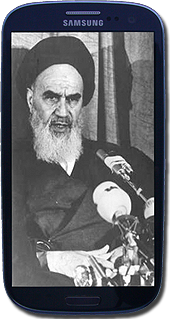![U.S. Navy photo by Mass Communication Specialist 2nd Class Jesse B. Awalt/Released (DefenseImagery.mil, VIRIN 090202-N-0506A-310) [Public domain], via Wikimedia Commons http://commons.wikimedia.org/wiki/File%3ARobert_Mugabe%2C_12th_AU_Summit%2C_090202-N-0506A-310.jpg U.S. Navy photo by Mass Communication Specialist 2nd Class Jesse B. Awalt/Released (DefenseImagery.mil, VIRIN 090202-N-0506A-310) [Public domain], via Wikimedia Commons http://commons.wikimedia.org/wiki/File%3ARobert_Mugabe%2C_12th_AU_Summit%2C_090202-N-0506A-310.jpg](https://www.exportlawblog.com/images/mugabe3.jpg)
ABOVE: Robert Mugabe
OFAC last week issued its first general license for U.S. sanctions relating to Zimbabwe. The license authorizes for the most part “all transactions involving Agricultural Development Bank of Zimbabwe and Infrastructure Development Bank of Zimbabwe.” Both banks, however, are on OFAC’s SDN List.
Since the two banks have been and remain on the SDN List, the license does not unblock the banks’ property interests that had been blocked as of the date of the license. OFAC issued a similar general license in February of this year authorizing dealings with four banks in Burma but kept the banks on the SDN List and continue to block the banks’ property interests blocked prior to the license. A major development from these licenses is, of course, giving U.S. exporters local banking options that were previously unavailable and without them likely stymied business development in those countries.
Exporters should also take note, however, of how OFAC’s easing of sanctions through these licenses has an onerous side-effect on U.S. companies. If a company’s policy is to determine whether to deal with entities or individuals based on their presence on the SDN List or other relevant sanctioned party lists, the authorization granted to deal with listed banks through these general licenses would go unnoticed. Exporters now must check all the lists they routinely do as well as stay on top of licenses issued by OFAC to know whether someone has, from most exporters’ perspectives, been in effect delisted.
If these SDN-lite designations continue, exporters will either need to monitor closely OFAC’s daily activity or make sure their screening software is doing so for them, at least if they want to be sure they are not unnecessarily limiting their export opportunities.

 Posted by
Posted by  Category:
Category: 


 Samsung has just
Samsung has just ![By WestportWiki (Own work) [CC-BY-SA-3.0 (http://creativecommons.org/licenses/by-sa/3.0)], via Wikimedia Commons http://commons.wikimedia.org/wiki/File%3ARalph_Lauren_Store%2C_NYC.jpg](https://www.exportlawblog.com/images/Ralph_Lauren_Store,_NYC.jpg)



